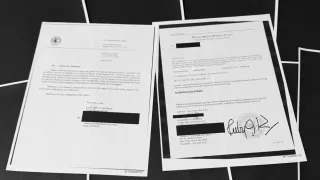July 24, 2017
Russian Parliament Bans Use of Proxy Internet Services, VPNs
READ TIME: 1 MIN.
Russia's parliament has outlawed the use of virtual private networks, or VPNs, and other Internet proxy services, citing concerns about the spread of extremist materials.
The State Duma on Friday unanimously passed a bill that would oblige Internet providers to block websites that offer VPN services. Many Russians use VPNs to access blocked content by routing connections through servers outside the country.
The lawmakers behind the bill argued that the move could help to enforce Russia's ban on disseminating extremist content online.
The bill has to be approved at the upper chamber of parliament and signed by the president before it comes into effect.
Russian authorities have been cracking down on Internet freedoms in recent years. Among other things they want Internet companies to store privacy data on Russian servers.






